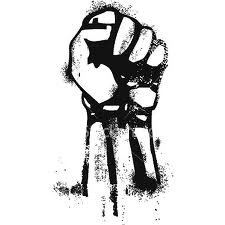Likeaporteño Spanish Classes: BA’s crème de la crème
 My last post alluded to an idea inspired by the Responsible Citizens of Pakistan; an idea that intends to harness civic engagement to create civic value for the people of Buenos Aires. It’s an experiment that, from both a professional and personal perspective, excites me a great deal. As I work towards complete comprehension of the Spanish language, I have an opportunity to fine-tune my practical skills as a public relations professional, and, from a utilitarian point of view, an opportunity to address an issue that for the masses is quite an unpleasant one. However, this is a project for the long-term, a project that certainly won’t see changes occur overnight.
My last post alluded to an idea inspired by the Responsible Citizens of Pakistan; an idea that intends to harness civic engagement to create civic value for the people of Buenos Aires. It’s an experiment that, from both a professional and personal perspective, excites me a great deal. As I work towards complete comprehension of the Spanish language, I have an opportunity to fine-tune my practical skills as a public relations professional, and, from a utilitarian point of view, an opportunity to address an issue that for the masses is quite an unpleasant one. However, this is a project for the long-term, a project that certainly won’t see changes occur overnight.
Consequently, I’ve decided to double my efforts and launch another, a project more personal than civic, a project that – with the right application and strategic thinking – should gather pace rather quickly.
I have a Spanish tutor, Yesica, an extremely talented professor that I see twice weekly. I’ve had many a tutor since arriving here in Buenos Aires last July, but Yesi’s Likeaporteño classes are unlike any I’ve experienced before. The reason: Her classes go beyond the classroom. She’s introduced me to (free of charge) the Argentine culture, from dancing Tango, to Folklore, to drinking Mate. Yesi isn’t just a Spanish teacher, but a Samaritan; energized through watching those she interacts with, grow. Since meeting her, I’ve transformed from a closed, cautious loner, to an open, interactive socialite that has resulted in my comprehension of the language to increase ten-fold. For that, I am eternally grateful.
The fact is, I want to give something back, and this blog post is the start of that process. I’ve lived in Buenos Aires for almost eight months now, and what I’ve noticed is that among small and independent organisations, the transition from old to new collaborative tools hasn’t really taken place like it has done in Europe and the US. Yesi has a Facebook profile of course, and a blog, but until seven days ago, no Twitter or Google+ account. It appears that is it still difficult for people and organisations to move away from their current collaborative platforms and habits and adopt new ones. My objective is to change that and demonstrate that no matter what kind or organisation you are part of – young or old, big or small, cutting-edge or mainstream – these new technologies are accessible and appropriate the world over, as are the new approaches to collaboration and interaction that make use of them. Yesi has created a life for me here offline, so now I’m going to build her professional life online and watch her incredible service blossom.
Over the course of the next few months, I will update you with progress reports and new ideas to increase the bandwidth of Yesi’s brand. Additionally, if any of you have launched initiatives similar in nature, or have any ideas that could help, it would be great to hear from you.
So blogosphere, and fellow collaborators, I leave you with one humble request. Do what you do best: Share.






